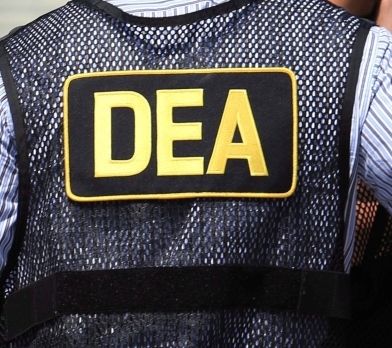Image via
Two months after proposing a massive increase in the quantity of weed and psychedelics that would legally be provided to clinical researchers in 2022, the US Drug Enforcement Agency (DEA) has decided to expand the production of research-grade psychedelics even further.
Back in September, DEA officials authorized a surprisingly large boost in the amount of legally-produced cannabis, MDMA, and psychedelic Schedule I drugs that it would make available to researchers by the end of the year. The following month, the DEA posted a notice in the Federal Register detailing plans to vastly ramp up the production of Schedule I research drugs in 2022.
In the notice, the feds suggested boosting the annual production quota (APQ) for legally-produced MDMA up to 3,200 grams, a 6,300 percent increase over the 2021 quota of 50 grams. The agency also recommended boosting LSD production by 1,150 percent, quadrupling its DMT and mescaline production, and doubling its APQs for psilocybin and cannabis.
The DEA’s initial notice included a request for public commentary on whether the proposed quota increases would be sufficient. And according to the public, the agency actually underestimated the massive scientific interest in medicinal psychedelics. Based on this feedback, the DEA posted another Federal Register notice indicating that it will increase its production quota even higher.
Researchers conducting FDA-approved trials on using MDMA to treat PTSD and other conditions will now have access to 8,000 grams of legal ecstasy next year, a 150 percent increase over the earlier quota. The DEA has also approved the production of 8,000 grams of psilocybin, a 26,567 percent boost over the 30 grams initially approved for 2021. And in response to quota applications from scientists looking to study other hallucinogenic compounds, the feds will produce 3,000 grams of DMT and 2,550 grams of 5-MeO-DMT.
Several indigenous communities provided feedback about the DEA’s initial plan to produce 100 grams of mescaline next year, raising concerns over the depletion of the endangered peyote cactus. The Native American Church of North America explained that “their peyote ceremonies are contingent on the continued availability of peyote in the wild for sacramental use, and that the non-Native use of mescaline in research and clinical studies will have a direct impact upon the church’s ability to use, purchase, transport, and possess peyote,” the DEA reported in the notice.
The church also addressed concerns that the potential legalization of peyote-derived mescaline as a medicinal treatment could “lead to commercialization and exploitation of peyote across its natural range,” potentially depriving them of their legal right to use this cactus in ceremonial settings. In response, the agency explained that it had only authorized the production of synthetically-derived mescaline. “Thus, the 2022 APQ for mescaline does not have any material effect on the use of peyote by members of the Native American Church,” the notice explains.
The DEA’s willingness to actually listen to researchers’ requests for access to medicinal psychedelics marks a massive paradigm shift for a government agency that has spent most of its resources helping to wage the racist War on Drugs. These increased production quotas will provide scientists with more opportunities to prove that these Schedule I drugs have therapeutic value, paving the way for their eventual legalization.











